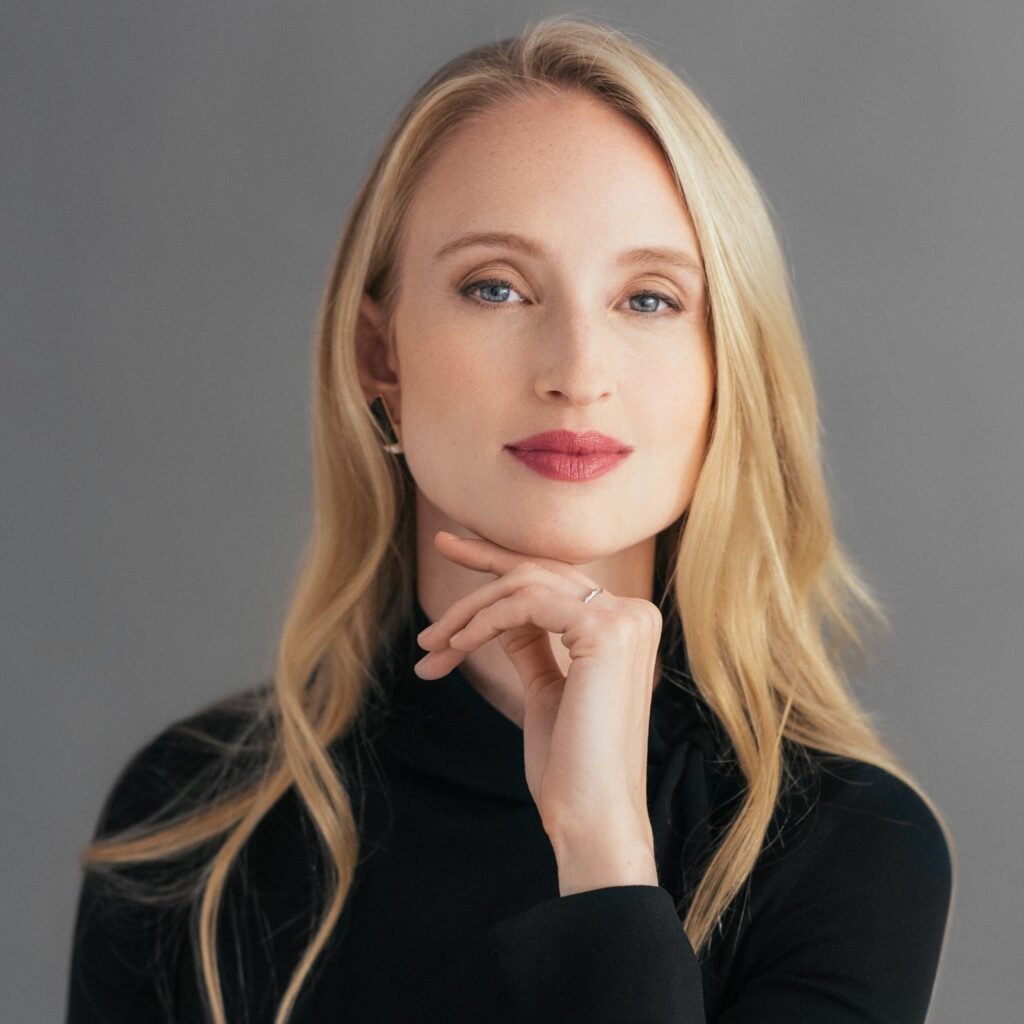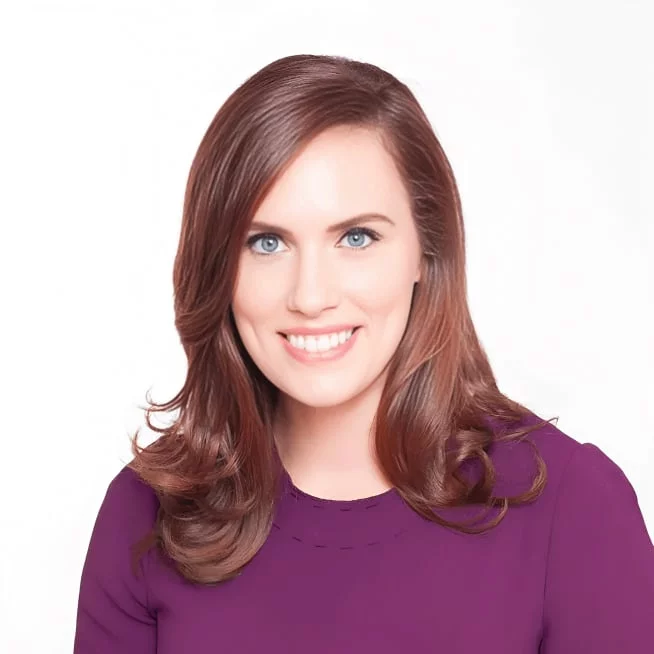I recently went one on one with Vanessa Barboni Hallik. Vanessa is the founder and CEO of Another Tomorrow, an end-to-end sustainable apparel company and platform for discovery and action. Vanessa was previously a Managing Director at Morgan Stanley, where she held several leadership roles in the emerging markets institutional securities business.
Adam: Thanks again for taking the time to share your advice. First things first, though, I am sure readers would love to learn more about you. How did you get here? What experiences, failures, setbacks or challenges have been most instrumental to your growth?
Vanessa: The short, surface level version is that I went from a very creative, multifaceted, progressive and academic upbringing with access to some of the earliest internet technology in the corn fields and industrial towns of the Midwest and the Rust Belt to becoming an emerging markets finance professional in New York, and now am bringing my business experience to solving problems in the fashion sector through the tech-enabled sustainable apparel company I founded, Another Tomorrow.
It is true that in many respects, this very moment is my life coming full circle to the values that I learned as a child combined with the professional experience of my life to date. However, it is very possible that I could have kept going on a path fairly divorced from my personal values and the shift that made today possible is a function of my decision when I hit my mid-30s to find a way to live all facets of my life as a whole person and to use my energy with purpose, which for me has been largely defined by an intense desire to help realign human behavior with nature and with dignity.
The seeds for where I am now were sewn a long time ago. One of my earliest memories is sitting cross-legged in my parents’ small study with the Whole Earth Catalogue on my lap, which sparked such deep curiosity for the solutions that can be found by creating at the intersection of design, technology, and science. I thought I would manifest this by becoming an architect.
Despite that clarity and drive at a young age, when my mother took her own life when I was 18, I went into survival mode and shifted gears entirely. I majored in economics and went into finance, which felt like a security blanket. I spent fifteen years focused on emerging markets, learned a lot about the world, and fought like hell to succeed by external standards. Constant movement and “progress” felt safe.
At one point I was in a role where I was really not performing and where I saw my relevance to the firm slipping away against the backdrop of a challenging time for the industry. I knew the clock was ticking. On the advice of a colleague who is still a close friend, I asked for a totally new job running a business that was a mess at the time, but that could be very relevant if turned around, and after a lot of pressing, I got it. That was a total career kick-save back then and it gave me the opportunity and insight to realize that I love building and rebuildling businesses. It also taught me to cherish friends who always help me connect back to my best self, to be that friend for others, and that you really have to stick your neck out and ask for what you want.
Nonetheless, even after the kick-save I struggled during those years personally as I really remained in survival mode throughout and over time as work became a bigger and bigger part of my life, parts of my personality started slipping away. When I got what I thought I desperately wanted career-wise only to find that it didn’t bring fulfillment and I barely recognized many parts of myself, it stopped me in my tracks and I decided I needed to change my perspective entirely, rather than looking at the next move. Another colleague articulately highlighted my dilemma; while I might be at my local maxima, I wasn’t at my global maxima. I needed to zoom way out and take a hard look at my values. I decided to look at my life from the perspective of 20 years in the future and what I would have wanted the 20 intervening years to have been about. It was clear that purpose and meaning were at the core. This has taught me the benefit of shifting perspective. In the hardest of moments, even now, it can feel like there is no way out, no move. But if I look at the same context from the vantage point of the future, the hurdles appear much smaller and there is no way I will allow them to derail a much bigger goal that’s meaningful to me.
Once that was clear, I decided to change course immediately and focus on where I could make a material difference to the world in my field based on my expertise and that was the beginning of the journey to where I am today.
Adam: How did you come up with your business idea? What advice do you have for others on how to come up with great ideas?
Vanessa: It was an accident. I had taken a sabbatical to pursue a shift from emerging markets to sustainable/ESG (environmental, social, governance)-integrated finance and during that time I thought I should do some deep research into why and how the major industries were throwing off such negative externalities, unintended negative consequences.
I found it fairly straightforward how most industries were messing up the planet, but I was floored when I got to the apparel industry. At the time, the impacts of fashion outside of longstanding human exploitation, which occasionally showed up on the front page only to be promptly forgotten by the public, were vastly underappreciated and undercovered by the media. And yet it turned out, the impact is massive and incredibly complex. I kept going deeper and deeper exploring its impact on people through exploitation, its impact on ecosystems and biodiversity through raw materials sourcing, chemical processing, and plastic microfibers, and on emissions through myriad stages of the supply chain.
I found it exceptionally difficult to put my newfound knowledge into action as a consumer, even with more ample time on a sabbatical, and it was just information I could not unknow.
In my frustration, I started speaking with friends about whether they were having difficulty living their own values in this arena. Initially I was dismayed that, like me at the beginning of my journey, they had no idea how impactful fashion was on the planet and therefore fairly unfocused on the impact of their individual purchases. But there was a clear understanding that waste was a problem and they looked at sustainability through the lens of trying to purchase fewer, better things. Their frustration was that to get the fantastic quality they wanted, the price tags were sky-high.
That is when the light bulb went off. I could solve the problem they were trying to solve by democratizing quality through a DTC version of luxury quality clothing that also embedded an owned-resale model. This would create two lower price tiers, one at roughly half the cost of traditional luxury, and one at half again of that. And at the same time, we would build our supply chains in a holistically sustainable way and demonstrate that to our customer by sharing the entire provenance of the garment with a QR code, starting to engender curiosity and impart knowledge. Over time, this model could be adopted to adjacent industry verticals with similar problems and supply chains (e.g. furniture) serving the same customer. That is how Another Tomorrow was born.
My advice is to stay curious, stay open. I never would have come up with this idea if I had not been compelled to explore the impacts of the industry more and more deeply and ultimately to explore how the needs of the planet intersected with needs of people to come up with a business that could serve both.
Adam: How did you know your business idea was worth pursuing? What advice do you have on how to best test a business idea?
Vanessa: I wish I had a more process-based answer to this one personally. I literally could not, not do it. It’s the first time I can say that I ever felt called to do anything. I just had to.
That’s not what I recommend for others.
As a recovering perfectionist, which I now see as a truly problematic trait, I strongly advocate testing a minimum viable product that delivers on the core solution, the core promise, to your customer. It’s easy to spend lots of time and money perfecting something before getting it out there into the world, but the best way to get real feedback is to give your customer something tangible to interact with, and figure out what they are willing to pay or exchange for it.
Adam: In your experience, what are the defining qualities of an effective leader?
Vanessa: There are many different types of leaders. Those who start companies that build things that add value and grow them effectively see around the curve and have a kind of insight into the interconnected nature of the universe. If they act on this insight when they see it and maintain a sufficiently expanded field of vision without getting too attached to their first concept, they will be ahead of the pack and stay there.
Having said that, there are many many kinds of leaders and as organizations grow a diversity of leadership traits is very valuable. I have come to see leadership as quite distinct from title.
Adam: How can leaders and aspiring leaders take their leadership skills to the next level?
Look constantly for your patterns and develop a strong distaste for the smell of your own BS so you can address it as soon as you detect it.
Adam: What are your three best tips applicable to entrepreneurs, executives and civic leaders?
Vanessa: As a good friend and advisor tells her children, it’s fairly simple:
Be an active listener.
Be truthful.
Be kind.
Adam: What is your best advice on building, leading and managing teams?
Vanessa: Alignment in vision and values comes first. When big goals or big challenges arise, you want the whole team to want to stay in the boat and row together to get to the end goal. Neither vision nor values by themselves is enough and the person with exceptional talent, but lacking both of these attributes will often be the most disruptive force you can have in a company.
Adam: What are your best tips on the topics of sales, marketing and branding?
Vanessa: Understand how your innate purpose as a company adds value for others and lean in to that hard. Beyond that, aesthetics matter and as Pauline Brown attests in her excellent book, there is an aesthetic intelligence that lifts the human spirit and that is the stuff that brand connection is made of.
Adam: What is the single best piece of advice you have ever received?
Vanessa: Be careful in choosing what mountain you climb. It is easy to keep putting one foot in front of the other driven by a sense of progress and ambition only to find you’ve climbed the wrong mountain and intended to be on the summit of another.
Adam: Is there anything else you would like to share?
Vanessa: I can’t overstate how much meditation has been a fundamental game-changer in my life. I started to meditate consistently three years ago and it has transformed every relationship in my life, starting with my relationship with myself dramatically for the better.









